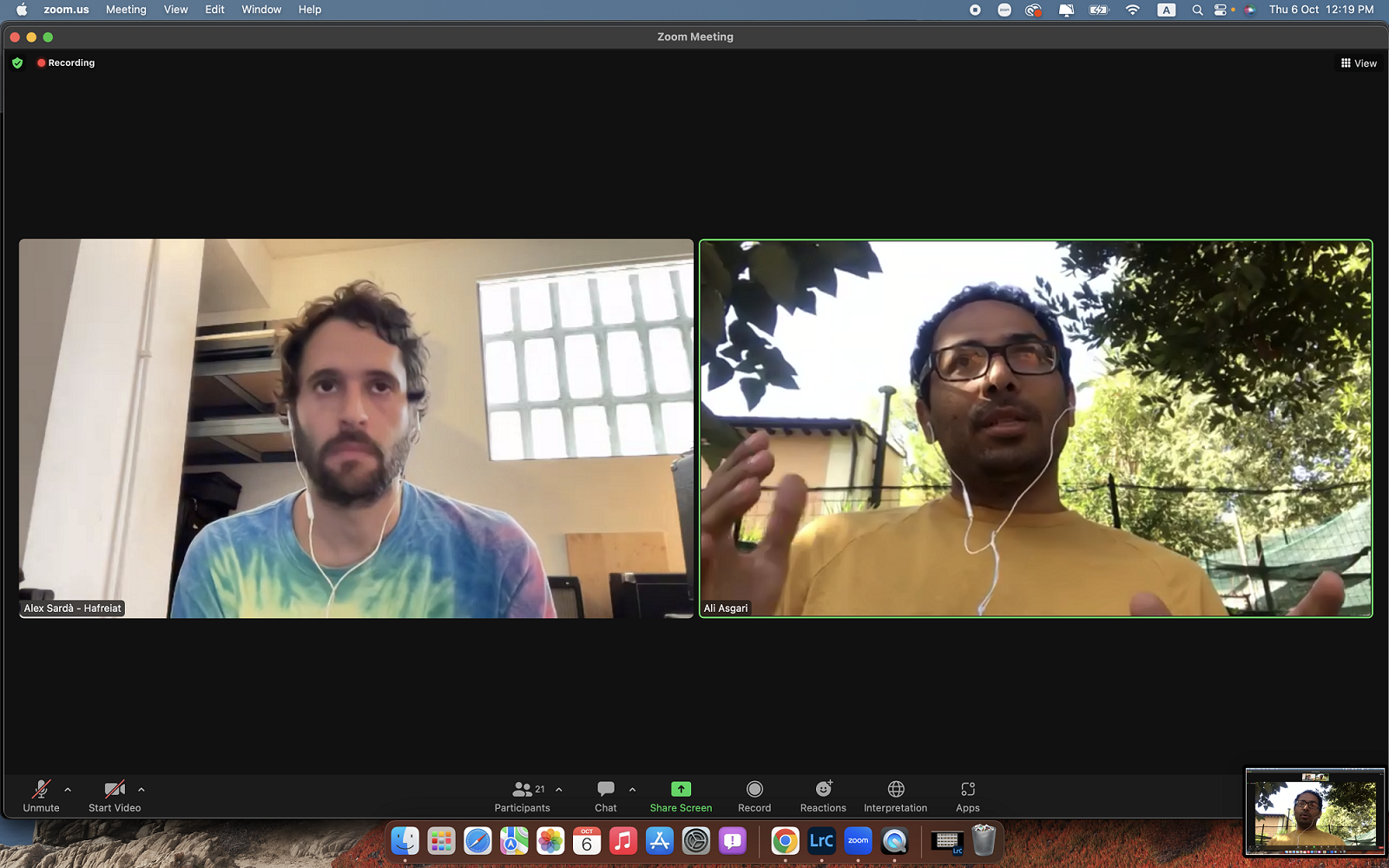Two filmmakers, coming from different societal spectrums, arrived at a common conclusion that creative storytelling, despite censorship and filming challenges, will deliver social impact by enabling audiences to gain a stronger understanding of the complexities as the first step towards finding positive solutions.
Addressing the media at the Special Edition of the 10th Ajyal Film Festival, Alex Sardà, director of Hafreiat (Spain, Qatar, Jordan/2022), and Ali Asgari, the director of Until Tomorrow (Iran, France, Qatar/2022) not only discussed the making of their films, despite challenging situations, but also how the filmmaking process influenced them personally and creatively.
“I believe the film also influenced me to reflect my own values as a filmmaker,” said Alex. For the feature documentary on Abo Dya, a fugitive from Amman living in a small village, the director, with a crew of just five, had camped at an archaeological expedition where the man was working.
Abu, a strong man with blind determination, tried to improve the working conditions of the site by leading a strike and confronts the Spanish team leading the expedition. “My attempt was to ask questions and create a dialogue, and make each party understand and change things. It was most important for me to allow multiple perspectives rather than stay close to one idea,” he added.
Alex said the core theme of his film is about how life can be after prison for people. “It is a story that resonates anywhere in the world; and it is about how society looks at the second chances of people. Also documenting the story of a father and son, the film presents the perspectives of two generations.”
Ali Asgari said his film is charting the shifts in the society, “with the new generation not allowing things to continue as they were. They are in a situation where they want to be free. And my protagonist (a young mother trying to hide from her parents her child born out of wedlock) is trying to overcome the traditional norms. In all my films, I have looked at stories of women faced with tough choices.”
Asgari said Until Tomorrow, supported by the Doha Film Institute, is a tribute to the powerful women in Iran. “I have six sisters and I am the youngest one; I have seen how hard they struggled to control and manage the situations they were in. Making such subjects about women is very difficult. We secured all the required permissions for shooting the film, and in the current situation, I am not sure if we can screen it soon in theatres within the country. I am trying to secure OTT rights so that more people can watch the film.”
He praised the young jurors at Ajyal Film Festival for the deep understanding of the complex issues that his movie presents. “I have been at Ajyal for all the ten years, and it is always exciting to be at a festival with young people at its heart. After my film’s screening, they were asking curious and important questions. They understood the situation and were also asking technical queries about the lighting and colour grading. In that age, I didn’t have any idea of what cinema was. I didn’t get this kind of enthusiasm to my films at other festivals, where I interact with more mature audiences.”
Asgari added that his film will appeal to women across the world. “The reaction to the screenings was very good, especially in the Middle East, where people could relate to it intuitively. The region needs time to bridge the gender gap, and stories such as these highlight real-world issues in a society that is fast changing.”
Both the filmmakers said it is important to give audiences the space to assimilate the movie and draw inferences. “Open-ended films inspire audiences to think further and to possibly contribute towards positive solutions,” said Asgari.
Alex said the new generation of content creators are facing an uncertain future with the various challenges across the world. “We are not certain how things will go; so, for us it is important to put forth valid questions to the audience and generate debates behind the screens. If everything is closed, then there is nothing left for you to answer through your thinking.”
They urged emerging filmmakers to just concentrate on making their dream film, irrespective of the challenges they face. “Just listen to your head and heart and make the films. You have to keep going – that is the most important part.”
The Special Edition of the 10th Ajyal Film Festival screened a specially curated programme of important stories from around the world to over 613 jurors from 50 countries. They also took part in the Ajyal Talks and Spotlight sessions in addition to several lively discussions on cinema.
Katara is the Cultural Partner of the Special 10th Edition of the Ajyal Film Festival. Contributing Partners include Darwish Holding, the Official Electronics Provider; with FNAC, Sony and 51 East; Qommunication is the Social Media Partner; and Friends of the Festival include Alkalive, the Official Water Sponsor; Giffoni, Qatar Museums, Leisure (Virtuocity).
-ENDS-













